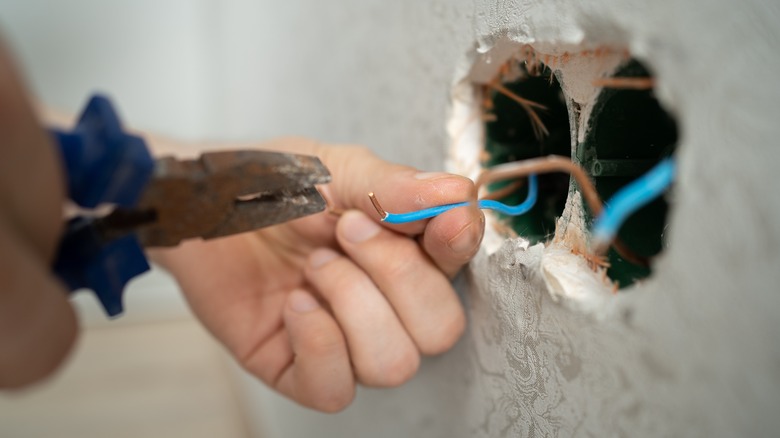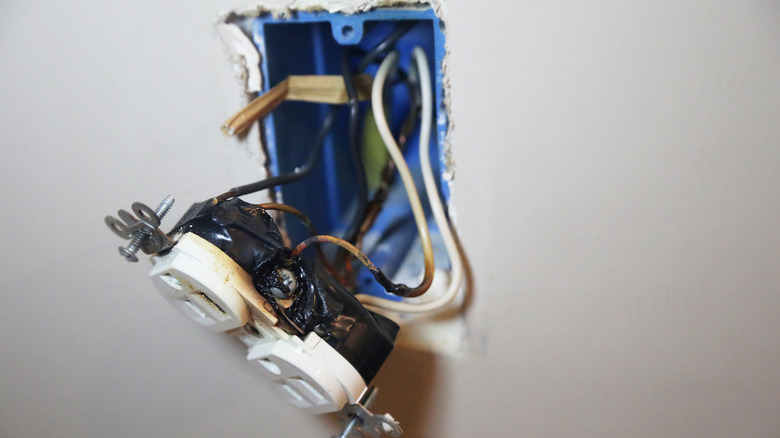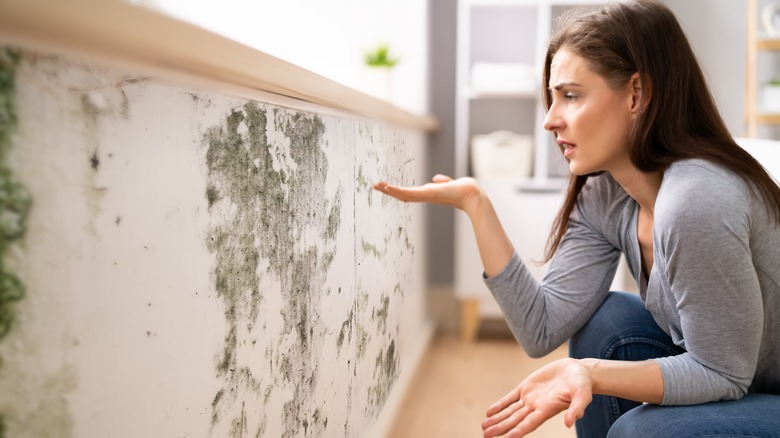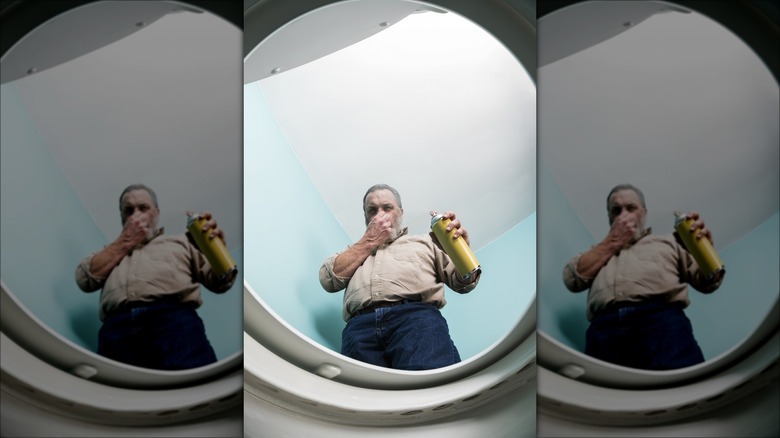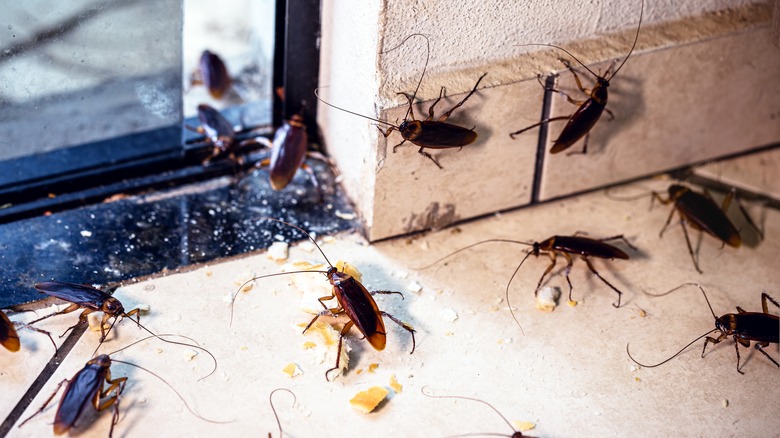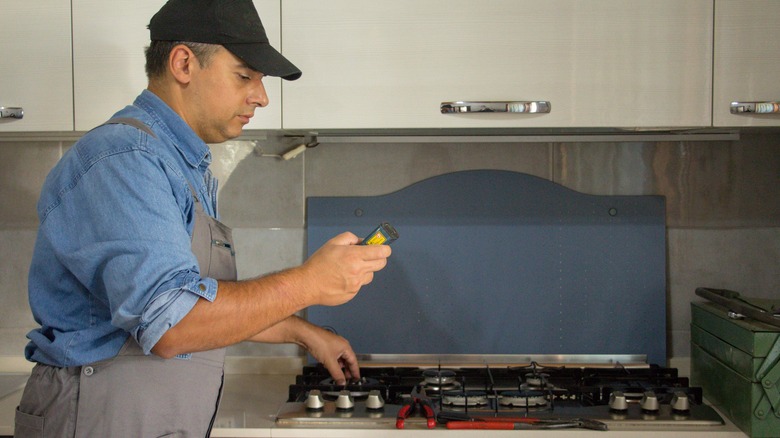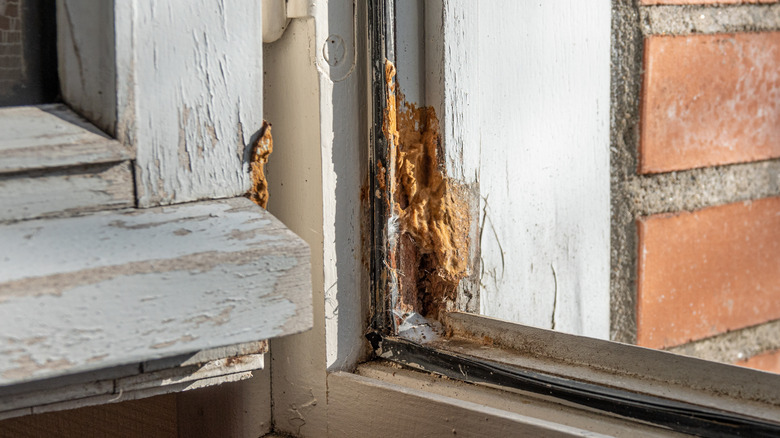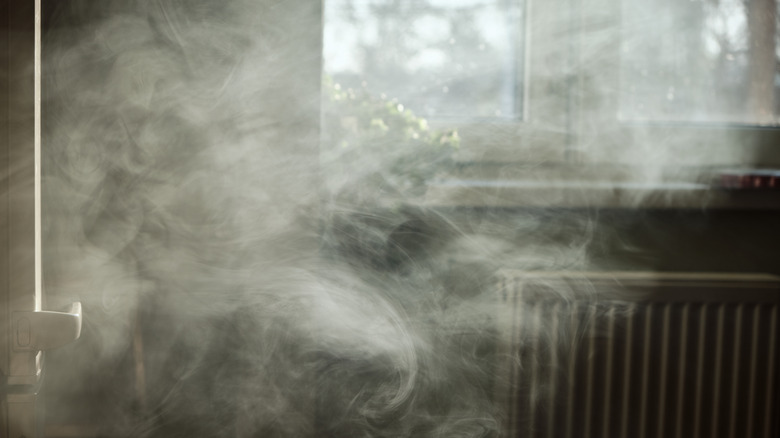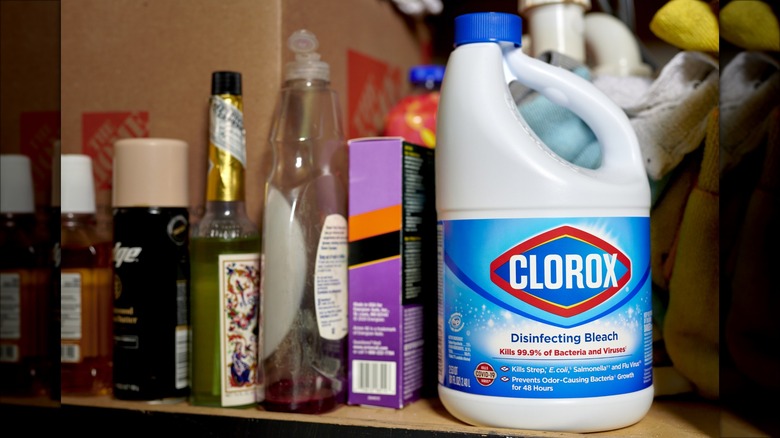Smells That Are Major Red Flags Around Your Home
Different odors and aromas are all around us, including many that are pleasant and some that are not so enjoyable. Many lingering household odors that you detect are simply unappealing, but they do not pose any serious risk to your health or safety. However, that is not the case for all odors in the home. There are some smells that should not be dismissed as harmless.
Certain odors can indicate the presence of hazardous gasses. Others can alert you to serious problems with a home that require immediate attention, such as the start of an electric fire or mold within the walls. Understanding which smells you should never ignore could literally mean the difference between life and death. In the next few sections, we'll take a closer look at these odors that should be treated as red flags and precisely what you should do if you detect one of them in your home.
An odor similar to that of a dirty sock can indicate a problem with the HVAC system
Dirty socks stink. However, sometimes if you catch a whiff of this unpleasant odor, a pile of laundry or your partner's gym bag might not actually be the source. The real reason your house smells like a dirty sock might actually have something to do with your heating and cooling system. The evaporator coils on these units become dirty and covered with dust and other contaminants. Plus, tiny organisms will view this gunk as a food source and build up over the coils as well. The contaminants combined with the organisms can release an odor surprisingly similar to that of stinky socks.
If you detect this odor in your home, it is time to clean the coils. Compressed air can help remove dust. However, if too much gunk has accumulated and is really stuck on the coils, then you'll need to scrub it off using a soft bristled brush. Always start by turning off the power switch for the unit to avoid the risk of electrocution, and then remove the screws for the access panel on the air handler to reach the coils. If you don't feel comfortable performing these tasks, consider hiring a heating and cooling company to service your unit and clean the coils — and any other components that need a little TLC.
A fishy smell could signal electrical wiring problems
Unless you just finished cooking some salmon or cod, detecting a fishy odor in your home is not a good sign. Such a pungent smell typically is an indication that there is a problem with the home's electrical components, such as the wiring, the circuit breaker, or the outlets. If any of these items get overheated, they often produce a fishy smell. Because there are so many different electrical components in the house, and you don't want to let this issue get worse, you'll want to contact an electrician as soon as you notice this odor. They can diagnose the problem and resolve it before it turns into a fire or some other major occurrence.
The overheating components could be caused by loose or frayed wires, a circuit that is overloaded, a breakdown of the insulation material covering wires in the home, or other issues. You can also minimize the chances of ever dealing with a fishy smell and the corresponding electrical malfunctions by scheduling an inspection of your home's circuits and wiring with a professional. They'll be able to identify potential issues before they turn into major problems.
A burnt plastic odor also signals electrical troubles
The smell of burning plastic is very unpleasant. However, it can indicate trouble for more than just your nose. If you notice such an odor in your home, it can also signal an electrical problem. Burning plastic smells can mean that one of your appliances is overheating. It can also be a sign of faulty wiring. Sometimes an HVAC unit may also smell like burning plastic.
Clearly, all of these potential causes for such a smell can be very serious. Once you've determined where it is coming from, contact a qualified professional right away. If it doesn't seem strongest near any of the appliances or the HVAC system, your best bet is to call an electrician. If you do notice that the smell seems to be emanating from one of these appliances, then turn off the power at the circuit breaker and contact a specific qualified repair person immediately.
Musty smells often indicate water problems or mold
A musty smell in a home is really never a good thing. Many times, a water or moisture problem is to blame for this odor. Unfortunately, it could mean that you're dealing with mold or mildew. Mold and mildew thrive in moist environments, and as they grow, they release microbial volatile organic compounds (mVOCs). These VOCs have that distinct musty smell that can alert you to a problem. Sometimes, mold or mildew will be easy to spot, but other times its growth may be hidden by the walls, carpets, or other objects in a room.
Breathing in mold can cause respiratory problems, particularly for those who are more sensitive or those that suffer from allergies. This is why you'll want to act quickly if you suspect mold is present. The best course of action will be to reach out to a qualified mold remediation company who will be able to fully eradicate the problem. These companies are trained to contain the mold and prevent it from further contaminating the air. They'll also have access to the proper solutions to kill it and reduce the chances of new mold growing in the future. Once the mold is remediated, take steps to address the causes of the problem, such as fixing leaky pipes or setting up a dehumidifier to lower humidity levels in the room.
Sewer smells mean there is a sewage issue
We probably don't have to tell you that a sewage smell is an indication that something is wrong. However, you might not know exactly what could be causing this offensive odor coming from your bathrooms. Unfortunately, there isn't just one simple answer; there are actually a few potential causes for a sewage smell. One common explanation is that the water in the P-trap has evaporated, but it could also mean that the seal around your toilet is broken, or that the sewer pipes or drain have become damaged.
If the smell is coming from a sink or drain that isn't regularly used, you might be able to easily resolve the issue yourself. Running water through the drain should refill the P-trap if it is empty. Another solution you could manage yourself would be to re-caulk the seal around the toilet, if it looks like it isn't intact anymore. Applying a new caulk to seal the cracks will prevent bacteria from growing and releasing the foul odor. If neither of these fixes address the smell, you'll want to call a plumber to assess the issue and remedy it for you.
An oily and musty smell might mean you have a cockroach infestation
No one wants to hear that their home has become infested by cockroaches, but unfortunately, an oily and musty smell might mean just that. Some people also say that the smell cockroaches emit has a hint of sweetness mixed in with the mustiness and oil. The odor that cockroaches produce is actually used to help the pests communicate with each other and spread news about where food is located or where they can find a safe hiding space.
Beyond eating your food and making a mess, cockroaches can threaten the health of the people in a home. They carry diseases and can also irritate asthma and allergy symptoms. If you want to get rid of cockroaches, consider contacting a professional exterminator. You could also try some DIY approaches, such as setting roach traps, spreading boric acid, Epsom salt, or baking soda around the areas where you suspect they are living.
The smell of rotten eggs could point to a gas leak
If you're certain you didn't leave a few eggs hidden after last year's Easter egg hunt, then that smell you're picking up in your house probably isn't related to food. While the smell of rotten eggs can sometimes signal less serious issues, such as a dry P-trap, it can also draw your attention to a much more dangerous problem: a gas leak. Gas leaks can cause individuals to become dizzy or fatigued, they may lead to headaches or cause you to have trouble breathing. With too much exposure, they can cause carbon monoxide poisoning or even death.
Gas is naturally odorless, so you might be wondering why it smells like rotten eggs. This is because the gas companies add mercaptan to the gas. The addition of this compound gives it the unpleasant odor, ensuring that individuals will be able to identify the presence of a leak and get out to safety. If you smell rotten eggs in your home, evacuate immediately and call 911 to alert professionals and let them resolve the problem.
An odor similar to that of mushrooms may mean you're dealing with dry rot
Mushrooms are another food with a pretty distinct odor. They have a damp and earthy smell. Unless you have a container of mushrooms open right in front of you, you shouldn't expect to smell them in your home. If you do, then it is probably a sign that you have dry rot. Dry rot is a type of fungus that can destroy wood in a structure, such as a home. The fungus causes the wood to crack or shrink. This can result in it essentially crumbling, which obviously spells serious trouble for the structure.
Dry rot is not something you want to mess around with. If present, it can spread through the wood in the home rather quickly, potentially causing serious damage and leaving you with huge bills. As soon as you detect the mushroomesque odor, call a professional contractor right away. You'll want them to come as quickly as possible to assess the damage, remove the dry rot, repair the area, and make sure that it doesn't spread anywhere else in the home.
A strong urine smell could indicate the presence of mice, rats, or other intruders
Chances are, if you notice a strong smell of urine in your home, you're going to be concerned. Sometimes, it could be caused by a pet, but other times the reason for this odor is something much more troubling. Mice, rats, raccoons, and other pests can leave this odor behind if they're infesting your home. Rodents can smell like ammonia (similar to urine), and these critters may also pee in your home to mark their territory. You might see stains on the ceiling that correspond with this foul odor, but not always.
If you think you're dealing with an infestation of raccoons, mice, rats, or other rodents, call in the professionals to rid these creatures from your house. Beyond the icky thought of having these pests wandering around your home, they can also pose a health threat. Breathing in the urine could lead to respiratory problems. If the rodents are carriers for hantaviruses, the Centers for Disease Control cautions that coming into contact with their urine or droppings could infect you as well.
Smelling smoke could mean you have a fire or another potentially serious issue
A smoky odor in a home should never be ignored. Beyond the obvious cause of fire, there are other potential reasons that you could be picking up this scent, and none of them are good. Detecting a smoky odor might mean that your chimney is blocked. This will send the smoke from the fireplace into the home's ductwork, where it will spread throughout the home. Smoky smells could also be caused by burning food, items that have caught on fire near a burner or candle, faulty wiring, or a damaged light bulb.
If you smell smoke, don't hesitate to take action. Call 911 if you see an active flame, or reach out to the non-emergency number if you don't think the threat is imminent. Then, grab your fire extinguisher to make sure you're ready to put out any fire that may present itself before the professionals get there. If you suspect the smoke odor is coming from an appliance or electronic device, unplug it and cut the power at the breaker. After the immediate threat has been taken care of, reach out to a professional for help. Depending on the cause of the odor, this could mean calling an electrician, hiring an appliance repair person, or contacting a chimney cleaning service.
Smelling bleach could mean that you have chlorine gas in your home
Chlorine gas is nothing to mess around with. According to the Centers for Disease Control, chlorine gas forms after liquid chlorine is released. The gas, which remains low along the floor, can quickly spread through a space. Exposure to it can lead to serious symptoms, including difficulty breathing, nausea, vomiting, coughing, blurred vision, tightness in the chest, skin pain or blisters, a burning sensation in the eyes, nose, throat, or lungs, and more. Clearly, it is not something you want to mess around with. Fortunately, chlorine gas has a very distinct bleach-like odor that makes it easy to detect.
It is possible that you inadvertently introduced chlorine gas into your home by mixing bleach with other chemical cleaners. Remember, you should never mix any cleaning products together because of the potential for dangerous chemical reactions — such as the production of chlorine gas — to occur. Because of how dangerous it is and how quickly it can spread, if you smell bleach and suspect there is chlorine gas in your home, evacuate all people and animals immediately. Call 911 after everyone is safely out to get the house.


